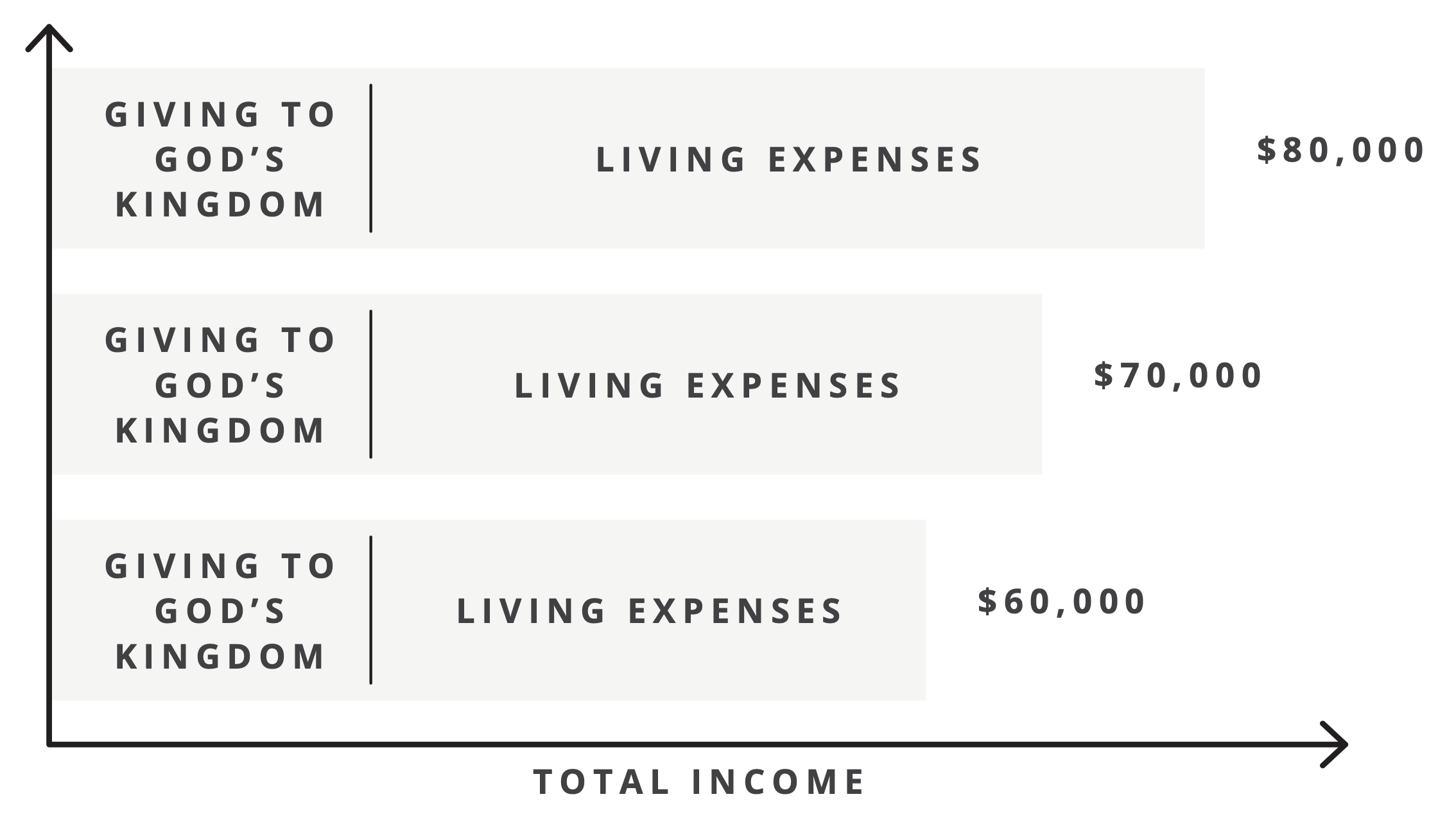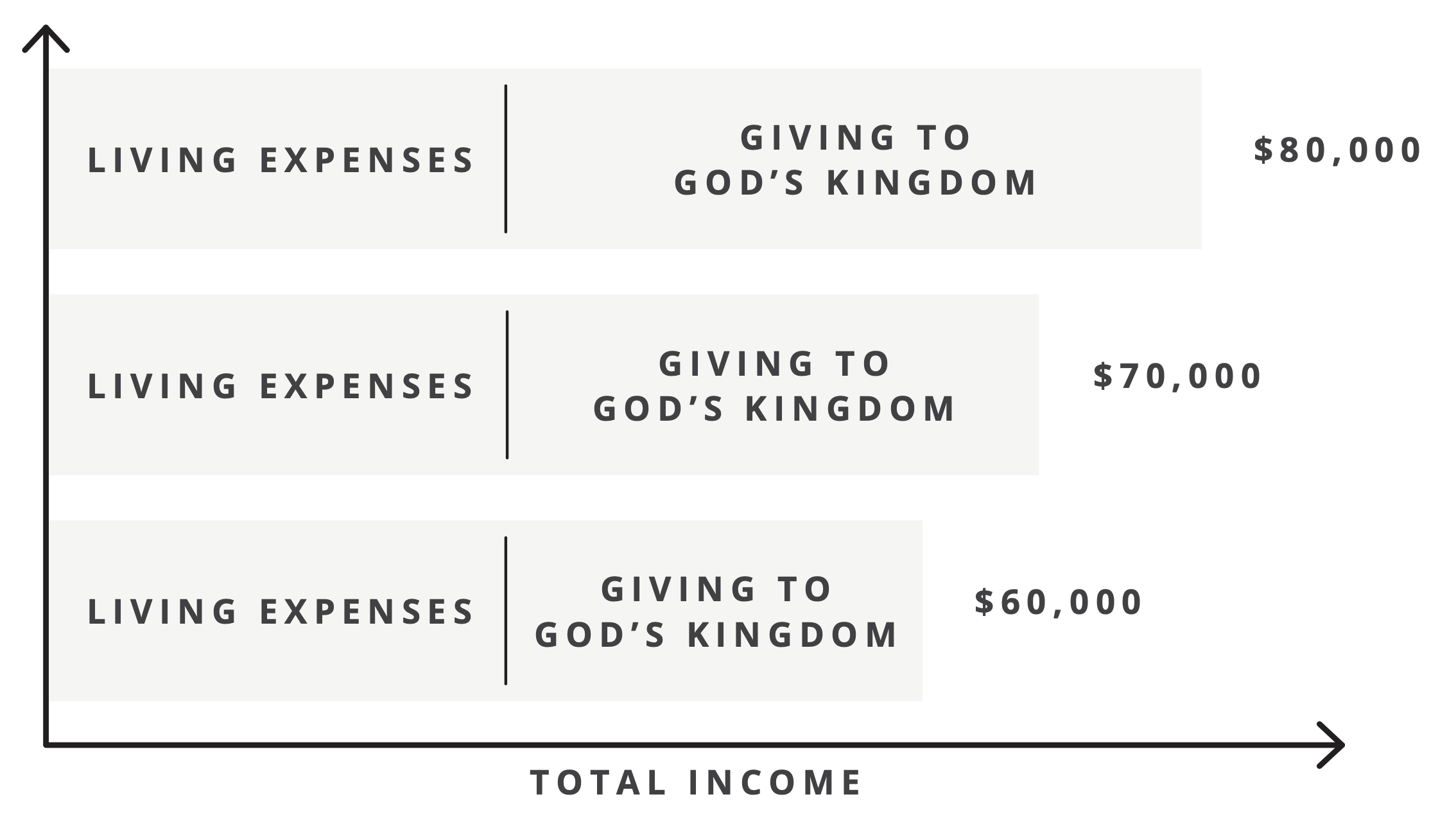The New Launch
30 MinutesLets Get Started
Before you get started, designate someone to lead for the day. The leader is responsible for reading any text or instructions (or assigning people to read).
Lets Get Started
Welcome to module 2. Before you get started, designate someone to lead. The leader is responsible for reading any text or instructions (or assigning people to read).
The New Launch
To start, let’s work through a theoretical scenario.
Imagine you are the director of a national college campus ministry and you are planning on starting a group on a new campus next year. You’ve already commissioned one couple who will be serving as full time staff. You have determined that the operational costs for the ministry will be about $10,000 per year to cover the meeting space, events, outreach, and other miscellaneous costs.
As you try to determine what the total fundraising goals will be, you consider an important question.
Discuss as a group. How much should be raised to cover the staff couple’s living expenses? What factors would you consider? How would you go about the decision?
Based on all of the factors you and the staff couple considered, you agree on a reasonable goal for living expenses. Afterwards, the couple begins raising support to cover their living expenses and the $10,000 of operational expenses.
As you approach the launch, you get exciting news. The couple reports that they have reached their total fundraising goal to cover all of their personal expenses and the operational expenses. In fact, they have even raised a full $8,000 beyond their goal. You start to consider the ways you might be able to use that excess to get the ministry started. You even consider how it might help one of the other campuses that has been struggling.
When you meet with the couple to discuss plans, however, they tell you that they were actually hoping to keep the extra $8,000 as part of their salary. They reason that since they put in most of the work fundraising, they had a reasonable case to include it in their salary for the year. Since they had already raised enough to meet their goal, any margin should go to their personal needs.
Discuss as a group. How would you respond? What do you think the excess $8,000 should be used for?
Discuss as a group. What if the excess was $80,000? Would that change your response at all?
Like the staff couple, we each have some basic living expenses that we require. And also like the couple, we have each been commissioned by God to whatever neighborhood, community, and career we are a part of right now. There is a bigger picture to our mission and purpose than our comfort and contentment.
Let’s take a second and consider the possibility that whatever money or wealth is in our control actually belongs to God, just like the money the staff couple was managing belonged to their donors. Even though it really feels like ours, and God gives us great freedom in how we use it, our wealth is still God’s in the end. For some, God might allot $40,000 per year and for others He might allot $200,000 per year. But either way, we are simply managers.
If it is true that we are managers, and our money is not our own, then we are left with an important question: How much of God’s wealth do I need for myself? Like any manager, we each require a manager fee to cover our own expenses. But when that “fee” is 100% of the money God has given us, then there is nothing left to actually use towards the mission and purpose He has given us. Like the first question in Part 1, we need to step back and determine what our reasonable living expenses should be.
Discuss as a group. Have you ever considered the idea that all of our wealth belongs to God? How does the idea that we are managers rather than owners change how you view the wealth you currently control?
When we view our money as our own, we will tend to give whatever we think we “owe” back to God, and spend any additional margin on our own wants and needs. In a sense, we allow God to take a fee out of our wealth.
In contrast, when we view our money as fundamentally belonging to God, we will tend to take out whatever we truly need to sustain ourselves, and spend any additional margin on God’s kingdom. In this manner, we take our fee out of God’s wealth.
As Christ said, “Where your treasure is, there your heart will be also.” (Matthew 6:21, ESV)


At this point, you may be thinking, “But I work hard for my money!”. And that may certainly be true. But as we dig a little deeper, we notice that no money comes through our hands without God’s blessing. Every day, we take for granted that in no time at all, a physical injury, job downsizing, market turn, or other unforeseeable circumstance could take all of our income away. Yet God continues to sustain us. The more we appreciate this fact, the more we come to realize that God has chosen to allow this wealth to come into our hands to manage. And He has big plans!
The manager concept is an important foundation for the SPRINT program. Remember this idea. We are managers, not owners.
Closing
That's All for Now
If your group is covering additional modules today, you can move on to the next module now. If you are finished for the day, take a few minutes to pray as a group.
Closing
That’s All for Now
If your group is covering additional modules today, you can move on to the next module now. If you are finished for the day, take a few minutes to pray as a group.
Explore More
Calculator
See how your spending compares to the rest of the country and explore choosing a finish line.
SPRINTs
Explore the biblical foundation for setting a finish line in a small group context over 8 weekly sessions.
Community
Check out the finish line forum to read about others' experience and to find encouraging stories.

